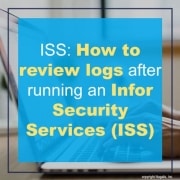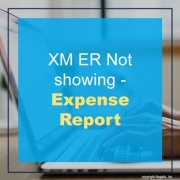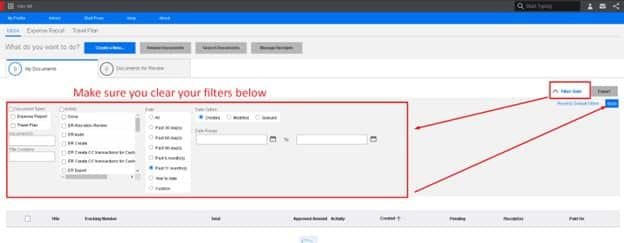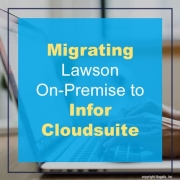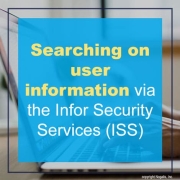You will want to start by reviewing the security_provisioning.log(s) in your LAWDIR/system directory.
All transactions completed in ISS related to user maintenance, federation, and synchronization, are logged in the LAWDIR/system/security_provisioning.log(s).
Please note, the log may take a few minutes to complete after the sync completes in the browser. Once the logs have completed, best practice is to copy the log(s) to a new directory so that they are not overwritten while you are researching the sync errors.
Open the most recent provisioning log and go to the bottom of the log. If nothing has been done in ISS since the sync completed you should see a message similar to the one below followed by a list of records that failed:
Thu Apr 26 16:56:01.282 CDT 2018 – default-457261151: Sync Analysis for object type IDENTITY completed with status=true
Thu Apr 26 16:56:01.282 CDT 2018 – default-457261151: Sync Analysis successfully completed for object type IDENTITY
Thu Apr 26 16:58:52.073 CDT 2018 – 1360326122: Sync Execution successfully completed for Task ID[4,963] with failed transactions for Sync Records:
The list of records that failed is limited to one section of the sync. You will see a list of either roles, actors, services, domains, endpoints endpoint groups or identities, depending on which section of the sync had failed records. This is because once the sync completes the analysis or execution of the section with the failed records the sync process will not continue. You must address the failed records to continue the sync.
Alternately you can search the log for the word “completed” to find the most recent section of the sync process that completed. There will be a completed message for each section of the sync.
Examples of completed messages without failed records:
Thu Jan 28 10:50:29.536 GMT-06:00 2021 – default-1845137754 – L(4) : Sync Execution task for [ROLE] with Task ID [1207] started.
Thu Jan 28 10:50:29.536 GMT-06:00 2021 – default-1504145202 – L(4) : Setting progress percentage [-1]
Thu Jan 28 10:50:29.537 GMT-06:00 2021 – default-1504145202 – L(4) : Success updating task [1207]
Thu Jan 28 10:50:29.537 GMT-06:00 2021 – default-1504145202 – L(4) : Starting Sync Execution using pagesize [500] and Nthread [5]
Thu Jan 28 10:50:29.551 GMT-06:00 2021 – default-1504145202 – L(4) : Retrieved 0 ROLE for execution
Thu Jan 28 10:50:29.551 GMT-06:00 2021 – default-1504145202 – L(4) : Sync Execution Successful for ROLE
Thu Jan 28 10:50:29.551 GMT-06:00 2021 – default-1504145202 – L(4) : SyncExecution execution time for [ROLE] took [0] seconds to complete
Thu Jan 28 10:55:33.485 GMT-06:00 2021 – default-863748063 – L(4) : Sync Execution task for [DOMAIN] with Task ID [1219] started.
Thu Jan 28 10:55:33.500 GMT-06:00 2021 – default-1293059945 – L(4) : Setting progress percentage [-1]
Thu Jan 28 10:55:33.500 GMT-06:00 2021 – default-1293059945 – L(4) : Success updating task [1219]
Thu Jan 28 10:55:33.502 GMT-06:00 2021 – default-1293059945 – L(4) : Starting Sync Execution using pagesize [500] and Nthread [5]
Thu Jan 28 10:55:33.506 GMT-06:00 2021 – default-1293059945 – L(4) : Retrieved 0 DOMAIN for execution
Thu Jan 28 10:55:33.506 GMT-06:00 2021 – default-1293059945 – L(4) : Sync Execution Successful for DOMAIN
Thu Jan 28 10:55:33.506 GMT-06:00 2021 – default-1293059945 – L(4) : SyncExecution execution time for [DOMAIN] took [0] seconds to complete
Examples of completed messages with failed records:
Thu Jan 4 07:19:55.755 EST 2018 – default- 2123289590: SyncAnalysis for ACTOR have 2 error records
Thu Jan 4 07:19:55.755 EST 2018 – default- 2123289590: Sync Analysis for object type ACTOR completed with status=true
Thu Jan 4 07:19:55.842 EST 2018 – 2123289590: Sync Analysis completed for object type ACTOR with failed Sync Records:
ACTOR=user1;
ACTOR=user2;
Tue Apr 19 10:18:33.128 CDT 2018 – default-1441714547: SyncAnalysis for ENDPOINT have 7 error records
Tue Apr 19 10:18:33.128 CDT 2018 – default-1441714547: Sync Analysis for object type ENDPOINT completed with status=true
Tue Apr 19 10:18:33.130 CDT 2018 – 1441714547: Sync Analysis completed for object type ENDPOINT with failed Sync Records:
HTTPPORT=82,SSODOMAIN=CSEMSS_EXTERNAL,FQDN=WFHPROD-LSF01.COM,HTTPSPORT=1448;
HTTPPORT=81,SSODOMAIN=CS_INTERNAL,FQDN=WFHPROD-LSF01.COM,HTTPSPORT=443;
HTTPPORT=81,SSODOMAIN=CS_INTERNAL,FQDN=WFHPROD-LM01.COM,HTTPSPORT=1443;
HTTPPORT=85,SSODOMAIN=TC_LDAP_BIN_EXT,FQDN=WFHPROD-LSF01.COM,HTTPSPORT=1447;
HTTPPORT=85,SSODOMAIN=TC_LDAP_BIN_EXT,FQDN=WFHPROD-LM01.COM,HTTPSPORT=1447;
HTTPPORT=9080,SSODOMAIN=CS_INTERNAL,FQDN=WFHPROD-MSCM01.COM,HTTPSPORT=8443;
HTTPPORT=21442,SSODOMAIN=CS_INTERNAL,FQDN=WFHPROD-IES01.COM,HTTPSPORT=9443;
Tue Apr 3 10:51:21.774 EDT 2018 – default-471380075: SyncAnalysis for IDENTITY have 4 error records
Tue Apr 3 10:51:21.774 EDT 2018 – default-471380075: Sync Analysis for object type IDENTITY completed with status=true
Tue Apr 3 10:51:21.774 EDT 2018 – 471380075: Sync Analysis completed for object type IDENTITY with failed Sync Records:
IDENTITY=USER:DOMAIN\user1,SERVICE=SSOP,ID=user1;
IDENTITY=USER:DOMAIN\user2,SERVICE=SSOP,ID=user2;
IDENTITY=USER:user1@domain.com,SERVICE=THICKCLIENTLDAPLS,ID=user1;
IDENTITY=USER:user2@domain.com,SERVICE=THICKCLIENTLDAPLS,ID=user2;
To find the exceptions for the failed records you will need to search within the log(s) each failed record. For each failed record you will search for the value from the list without the semicolon at the end of the line:
For failed record ACTOR=user1; you will would search for “ACTOR=user1”
For failed record HTTPPORT=82,SSODOMAIN=CSEMSS_EXTERNAL,FQDN=WFHPROD-LSF01.COM,HTTPSPORT=1448; you would search for “HTTPPORT=82,SSODOMAIN=CSEMSS_EXTERNAL,FQDN=WFHPROD-LSF01.COM,HTTPSPORT=1448”
For failed record IDENTITY=USER:DOMAIN\user1,SERVICE=SSOP,ID=user1; you would search for “IDENTITY=USER:DOMAIN\user1,SERVICE=SSOP,ID=user1”


